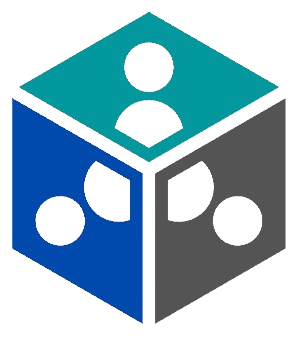Modding, short for modification, has become an integral part of the gaming community, allowing players to exercise creativity and customize their gaming experiences. This article explores the fascinating world of modding, delving into the process of creating game modifications, its impact on the gaming industry, and the vibrant modding communities that have emerged.
I. Understanding Game Modifications:
A. Definition and Purpose: Game modifications, or mods, refer to alterations made to a game’s content by players or third-party developers. Mods can range from simple cosmetic changes to extensive overhauls that introduce new gameplay mechanics, characters, or storylines.
B. Diverse Modding Communities: Modding communities exist for a wide range of games, encompassing genres from role-playing to first-person shooters. These communities provide platforms for creators to share their work, collaborate, and engage with players who appreciate their modifications.
II. The Modding Process:

A. Tools and Software: Modding begins with the use of specialized tools and software. These can include level editors, scripting languages, and 3D modeling programs, depending on the complexity of the desired modifications.
B. Understanding Game Files: Modders must gain a deep understanding of a game’s file structure and code to make effective modifications. This often involves studying documentation, community forums, and the game’s developer resources.
C. Creating Assets: Modders may need to create new assets, such as textures, models, or sound files, to implement their changes. This demands skills in graphic design, 3D modeling, or audio production, depending on the nature of the mod.
D. Scripting and Coding: More intricate mods may require scripting or coding knowledge. Modders use programming languages to implement new features, adjust game mechanics, or fix bugs within the game code.
III. Impact on Gaming Industry:
A. Extended Lifespan of Games: Modding has been instrumental in extending the lifespan of games. Player-created content keeps games relevant long after their initial release, fostering dedicated communities and player engagement.
B. Enhancing Replayability: Mods contribute to the replayability of games by introducing new challenges, quests, or storylines. Players can revisit their favorite titles with a fresh perspective, experiencing a customized and often more challenging version of the game.
C. Innovation and Experimentation: Modding serves as a sandbox for innovation and experimentation. Developers often take inspiration from successful mods when designing sequels or expansions, leading to a symbiotic relationship between the gaming community and the industry. The influence of gaming software on eSports, see the link for more details.
IV. Notable Modding Success Stories:
A. The Elder Scrolls Series: The Elder Scrolls series, notably titles like Skyrim, has a thriving modding community. Mods range from graphical enhancements to complete overhauls that introduce new lands, characters, and questlines, showcasing the versatility of modding.
B. Minecraft: Minecraft’s success is partially attributed to its modding community. Players have created mods that introduce new biomes, creatures, and gameplay mechanics, transforming the game from a simple sandbox into a diverse and expansive experience.
C. Half-Life and Counter-Strike: The Half-Life series and its multiplayer mod, Counter-Strike, exemplify how mods can evolve into standalone games. Counter-Strike, initially a mod for Half-Life, became a hugely successful franchise in its own right.
V. Challenges and Considerations:
A. Compatibility Issues: Game updates and patches can render mods incompatible, requiring modders to update their creations continually. This ongoing maintenance can be challenging, especially for large and complex modifications.
B. Intellectual Property Concerns: Modders must navigate intellectual property concerns, respecting the rights of the original game developers. Some games have embraced modding, while others maintain stricter control over the use of their intellectual property.
VI. Showcasing Mods and Modding Communities:

A. Modding Platforms: Various platforms serve as hubs for showcasing and distributing mods. Platforms like Nexus Mods, Steam Workshop, and ModDB provide modders with a dedicated space to share their creations with the gaming community.
B. Community Collaboration: Modding communities are known for their collaborative spirit. Platforms like GameSpot, IGN.com, and Fandom.com often feature discussions, reviews, and showcases of noteworthy mods, fostering a sense of community and recognition.
VII. Future Trends in Modding:
A. Integration of Modding Tools: Some game developers are integrating modding tools directly into their games, making it easier for players to create and share modifications. This trend is likely to continue, further empowering the gaming community.
B. Increased Accessibility: As modding tools become more user-friendly, the barrier to entry for aspiring modders is lowered. Increased accessibility is expected to result in a more diverse range of mods, appealing to a broader audience.
Conclusion:
The art of modding has become a dynamic and influential aspect of the gaming landscape. From enhancing existing games to creating entirely new experiences, modding has left an indelible mark on the industry. To explore and engage with the world of modding, check out articles and discussions on reputable gaming platforms like GameSpot. These platforms often feature insights, reviews, and showcases of the latest and most impactful game modifications, providing a valuable window into the vibrant world of modding.


